Recipe: Stale bread? Make French Toast!
With my last making of French Toast, curiosity took over and I just had to know the origins of this most delightful toast type. And part of me was thinking, “Now is this really french?”
Well, I’m still not really sold on it being exclusively French because egged bread has been around since bread has been. But the French seemed to really make it stick. The story goes that most french foods were developed to hide the fact that they were going stale, rancid, etc.
But again, I think that was a sign of the times (no refrigeration). And tossing stale bread wasn’t an option because the whole making it from scratch everytime thing, think little red hen’s story of growing the grain and grinding it.
So across the world, egg bread was considered the premier way to use up your stale bits. It made it less “meh” and gave it a protein boost in the mix. Toss in some cinnamon and sugar and you are on your way from stale to steller right?
Here’s how I like to make our french bread:
You’ll need 2 eggs, a quarter cup of milk, a 1/2 T cinnamon, powder sugar, stale bread, and a skillet.
- Start heating up your skillet (10-12″ works well)
- Crack 2 eggs in a pie pan and add 1/4 cup milk. Usually I egg ball it by adding enough milk to cover the whole bottom of the pan, but not so much that it covers the whites of the eggs.
- Whisk well and dip the stale bread in the egg mixture, sprinkle with a generous amount of cinnamon, flip the bread over and egg up the other side and add more cinn.
- Place the egged bread in the pan and let it sit until browned, about 5 minutes on medium heat. If you try and flip it too soon it will just stick.
- Flip and cook the other side.
- Place a plate a dust powdered sugar for a classy look.
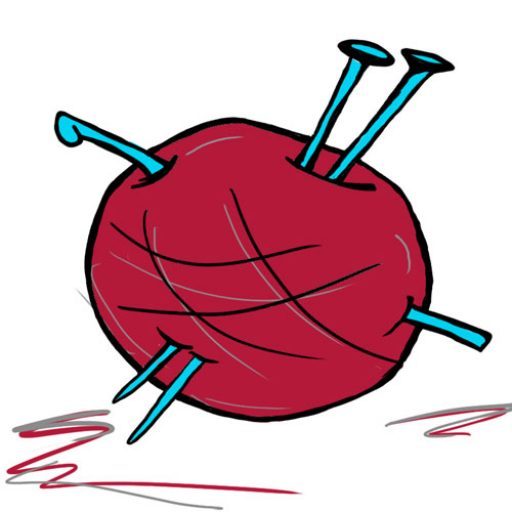
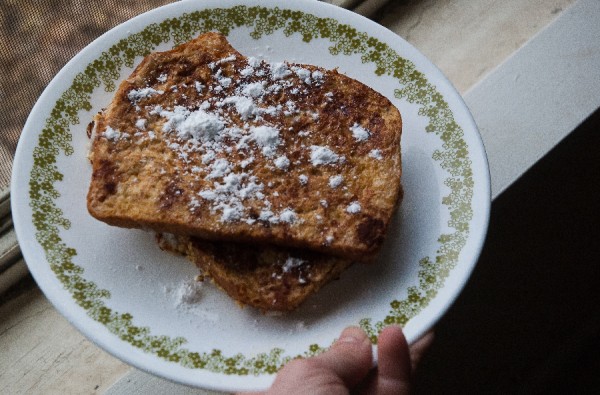

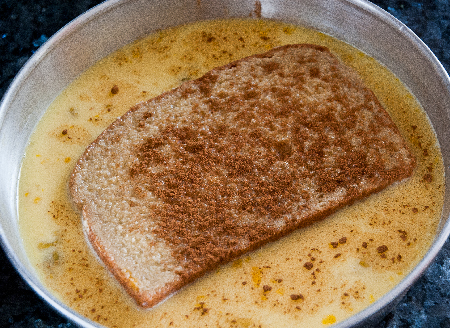
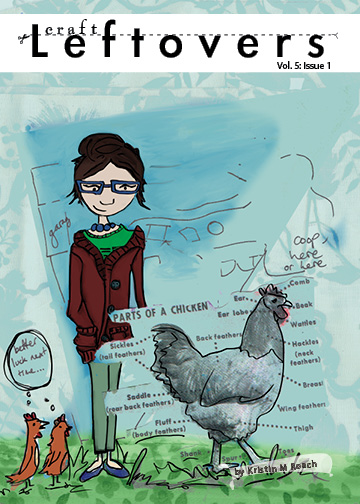
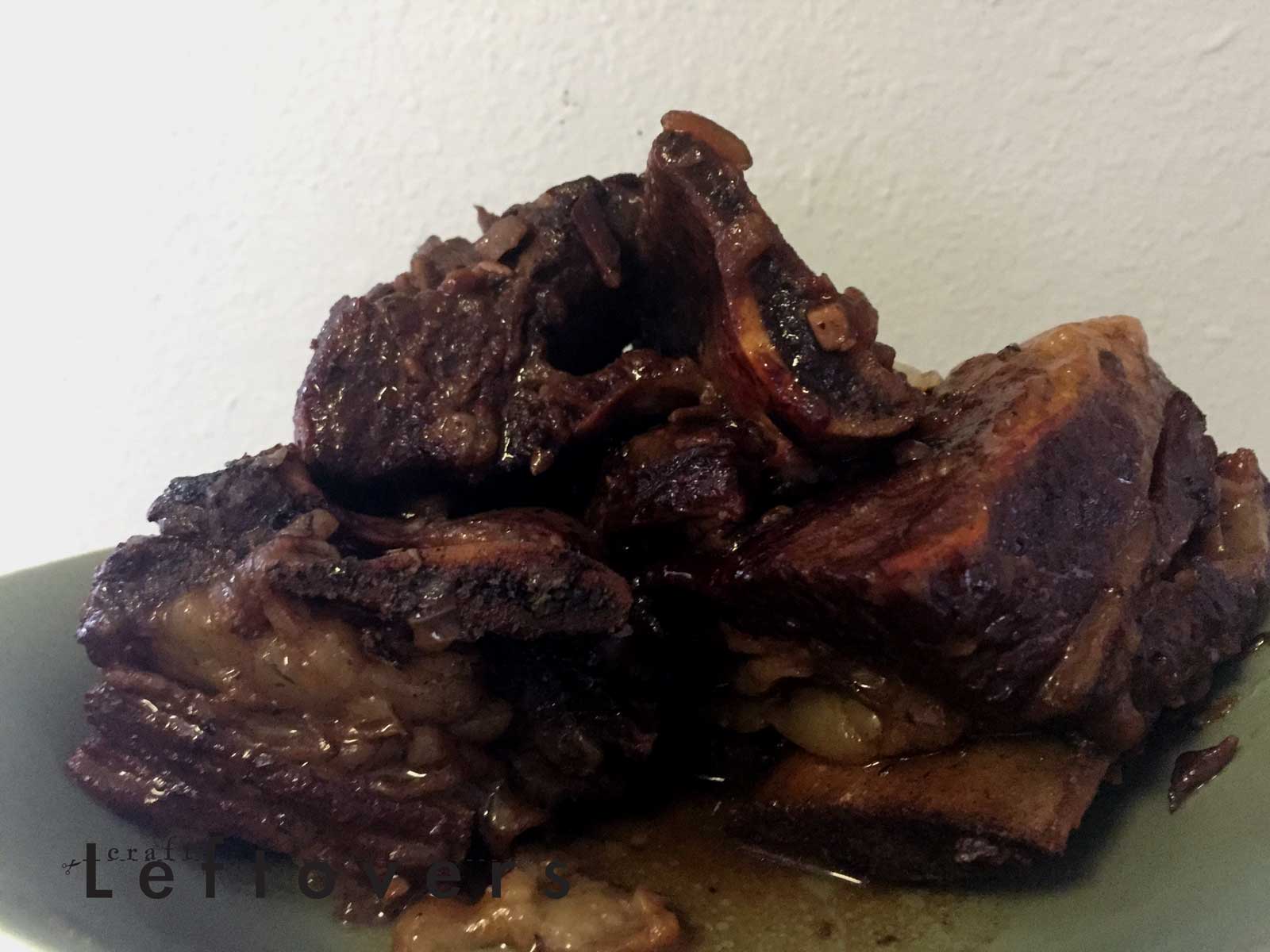
In French, it’s called “Pain Perdu” or “lost bread”. I also have a recipe circa 1910 called “German Toast” that is French Toast with a different name. My theory is that during WWI, German Toast turned into French toast much like Freedom Fries.
That’s a great addition to the post! Thanks so much for sharing!
I have a Mennonite cookbook that calls it “Arme Ritter” in German, which means ‘poor knight’. I’ve always loved that. It evokes whole layers of imaginative speculation while I stand next to the pan.
Aww, poor knight :) That does really open the imagination right up! I’ll be thinking of that the next time I make it! With all these new names, I’m not sure if I want to just keep calling it “french toast”.